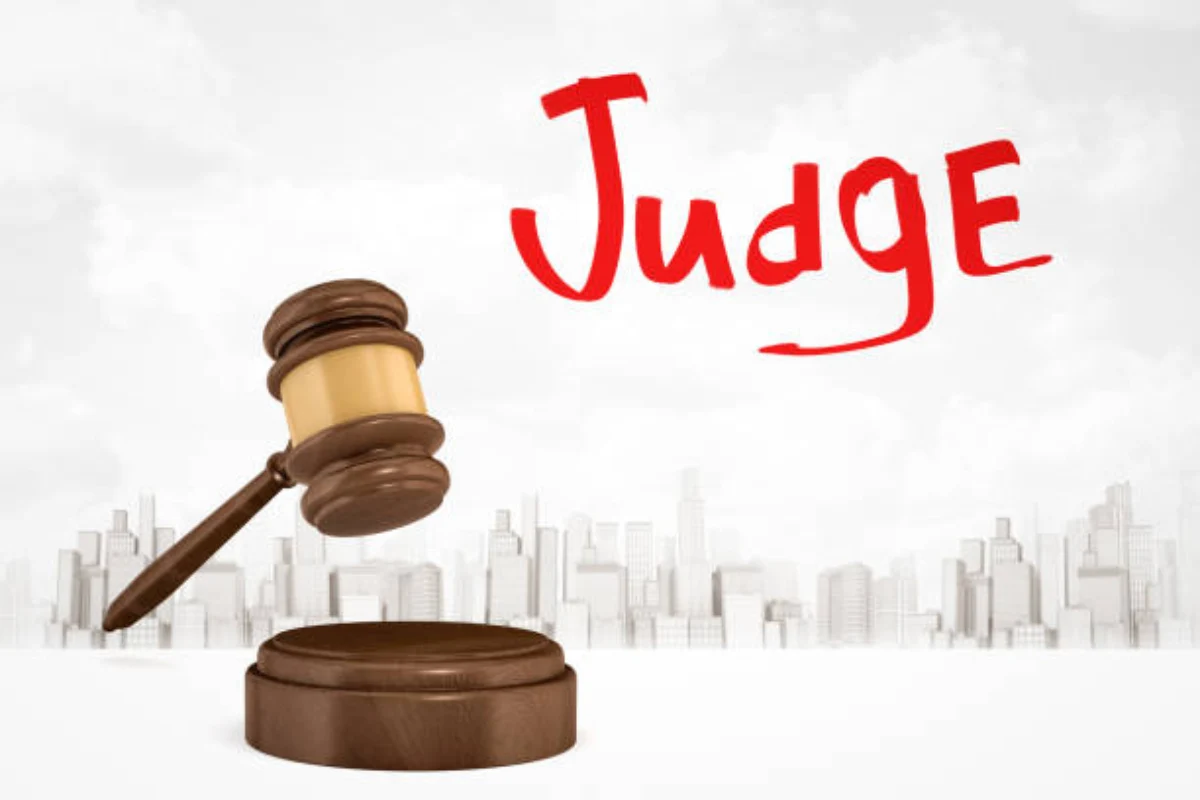What is a Mass Tort Lawsuit? Understanding Your Legal Rights

Defining a Mass Tort Lawsuit and Its Purpose
A mass tort lawsuit is a legal action that allows multiple individuals to collectively seek compensation for similar injuries or damages caused by a common defendant. These lawsuits are commonly filed in cases involving defective products, environmental disasters, or harmful pharmaceutical drugs. The primary purpose of a mass tort lawsuit is to streamline legal proceedings for individuals who have been affected by the same cause, ensuring they have a fair chance at receiving compensation.
Unlike class action lawsuits, where a single lawsuit represents a group of people, mass tort lawsuits enable each plaintiff to maintain their unique case. This means that the compensation amount is determined based on individual damages rather than being divided equally among all claimants. For example, if a pharmaceutical company releases a drug that causes severe health complications, each affected individual can file their own lawsuit under a mass tort claim. This allows for personalized compensation based on the severity of harm suffered.
Mass tort lawsuits also benefit plaintiffs by allowing shared legal resources and evidence, reducing overall legal costs. Additionally, it amplifies the voices of individuals seeking justice against large corporations. If you have suffered injuries or damages caused by negligence, it is essential to understand your legal rights and explore the option of filing a mass tort lawsuit. Seeking guidance from an experienced attorney can significantly enhance your chances of receiving fair compensation. Learn more about legal rights and assistance from professional legal firms like Legal Case Review.
Key Differences Between Mass Torts and Class Action Lawsuits
It is crucial to understand the key differences between mass tort lawsuits and class action lawsuits when considering legal action. While both legal processes involve multiple plaintiffs suing a common defendant, they differ significantly in their structure and outcomes.
In a mass tort lawsuit, each plaintiff files their individual claim, allowing for personalized legal representation and compensation. This means that the court treats each case as unique, and the outcome is based on the individual damages sustained. In contrast, a class action lawsuit consolidates multiple similar claims into one single lawsuit. This simplifies the legal process but may lead to less personalized compensation.
For instance, if a company produces a defective medical device that causes harm, individuals can file their claims under a mass tort. Each claimant can present their unique injuries and pursue appropriate compensation. However, in a class action lawsuit, all plaintiffs are treated as a single entity, and any settlement is divided equally among them.
Mass tort cases often involve extensive investigations, multiple testimonies, and individualized compensation assessments, making them more complex. However, they offer a higher potential for fair compensation tailored to each claimant’s specific damages. Understanding these differences can help you make informed decisions regarding legal action if you have been affected by a large-scale harmful event.
Common Types of Mass Tort Cases
Mass tort lawsuits cover a wide range of cases where large groups of individuals have been harmed due to the actions or negligence of a common defendant. Here are some common types of mass tort cases:

1. Pharmaceutical Drug Cases
Pharmaceutical mass torts occur when a medication causes severe and undisclosed side effects. These lawsuits often target drug manufacturers that fail to warn consumers about potential health risks. Victims may experience chronic illnesses, organ damage, or other adverse effects due to the defective drug.
2. Defective Product Cases
Defective product mass torts arise when a product, such as a household appliance or medical device, causes injuries to consumers. This can include faulty electronic devices, malfunctioning automotive parts, or defective medical implants.
3. Environmental Disasters
Environmental mass tort lawsuits are filed when large communities suffer harm due to environmental pollution caused by corporations. This can include chemical spills, toxic waste contamination, air pollution, or water contamination. Such cases aim to hold corporations accountable and provide compensation to affected communities.
4. Consumer Fraud Cases
Consumer fraud cases involve businesses that engage in deceptive marketing practices, misleading advertising, or false product claims. Victims who have been financially harmed can collectively seek compensation through a mass tort lawsuit.
Understanding your legal rights in these situations is vital. If you believe you have been harmed by a defective product, hazardous drug, or environmental disaster, consider seeking legal advice to explore your options.
The Process of Filing a Mass Tort Lawsuit
Filing a mass tort lawsuit involves several key steps that can help you seek justice and compensation for your injuries. Here’s how the process generally works:
Step 1: Consultation with an Attorney
The first step in filing a mass tort lawsuit is to consult with a qualified attorney who specializes in these cases. They will evaluate your situation, determine if you have a valid claim, and guide you through the legal process.
Step 2: Gathering Evidence
Your attorney will help gather evidence to support your claim. This may include medical records, proof of product usage, expert opinions, and witness statements. Strong evidence increases the chances of a favorable outcome.
Step 3: Filing the Complaint
Your attorney will file a formal complaint in court, outlining your injuries and the legal basis for your claim. The defendant (usually a corporation) will then be notified of the lawsuit.
Step 4: Discovery Process
During this phase, both sides exchange information, evidence, and testimonies. This process can take time but is crucial in establishing a strong case.
Step 5: Settlement or Trial
Most mass tort cases are settled before reaching trial. The defendant may offer compensation to resolve the case. If a fair settlement cannot be reached, the case may proceed to trial where a judge or jury will determine the outcome.
Navigating a mass tort lawsuit can be complex, but with experienced legal representation, you can increase your chances of receiving fair compensation.
Understanding Your Legal Rights in a Mass Tort Case
Understanding your legal rights in a mass tort case is fundamental to ensuring you receive appropriate compensation for your damages. Some essential rights you have include:
- The Right to Legal Representation: You have the right to hire an attorney who can advocate for your interests and help you understand the legal process.
- The Right to Compensation: You are entitled to compensation for medical expenses, lost wages, pain and suffering, and other related damages.
- The Right to be Informed: You should stay informed about the progress of your case and any settlement offers.
- The Right to Refuse Settlement Offers: If you believe the settlement offer is insufficient, you have the right to refuse and continue pursuing fair compensation.
Understanding these rights is essential in protecting yourself against powerful corporations. Seek legal guidance from reputable sources, such as the American Bar Association, to stay informed.

How to Choose the Right Attorney for Your Mass Tort Claim
Choosing the right attorney for your mass tort claim is crucial in ensuring you receive maximum compensation. Here’s what to consider:
- Experience: Select an attorney who has extensive experience handling mass tort cases.
- Resources: Ensure the attorney has sufficient resources to investigate and build a strong case.
- Reputation: Check online reviews, client testimonials, and case outcomes to gauge the attorney’s reputation.
- Communication: A reliable attorney should keep you informed and address your concerns.
By choosing the right legal representation, you increase your chances of a favorable outcome in your mass tort case.
Potential Outcomes and Compensation in Mass Tort Lawsuits
The outcome of a mass tort lawsuit varies based on the nature of the case and the evidence presented. Potential outcomes include:
- Settlement Agreements: The defendant may offer a settlement to resolve the case without going to trial.
- Jury Awards: If the case goes to trial and the jury finds the defendant liable, they may award compensation based on the evidence presented.
- Corporate Reforms: Successful mass tort lawsuits often lead to changes in corporate practices, improving safety standards for consumers.
Compensation typically covers medical expenses, lost income, pain and suffering, and punitive damages. Understanding your legal rights and seeking experienced legal representation is crucial to achieving a favorable outcome.
Frequently Asked Questions About Mass Torts
1. Can I join a mass tort if I’ve already filed a claim? Yes, if your claim aligns with an ongoing mass tort case, you may be able to join the lawsuit.
2. How long does a mass tort lawsuit take? Mass tort lawsuits can take months to several years, depending on the complexity of the case.
3. Is there a deadline to file a mass tort claim? Yes, there are statute of limitations that vary by state. It’s crucial to act promptly to preserve your legal rights.
4. Will I receive individual compensation? Yes, compensation is based on individual damages, ensuring each claimant receives fair restitution.
By understanding your legal rights and seeking expert legal advice, you can navigate the complexities of mass tort lawsuits effectively and increase your chances of receiving fair compensation.


